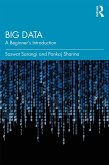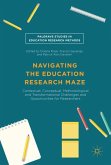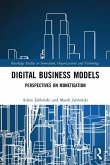"Big data is flooding society. In this important and original volume, Kathy Mills shows that big data nicely fits with qualitative researchers' pursuit of naturalistic materials. Essential reading for researchers and students." David Silverman, Emeritus Professor, Sociology Department, Goldsmiths' College, London University, Visiting Professor, UTS Business School
"In the world of social research, there have until now been two paradigmatic kinds of methodology, broadly classified as qualitative and qualitative. Rarely the twain shall meet, except by awkward juxtaposition in 'mixed methods'. Now Kathy Mills introduces us to a completely new species of research which is at once qualitative and quantitative. Big Data for Qualitative Research is a concisely described and elegantly argued account of the new qualitative data sources, from social media digital learning environments. Massive in their scale, these sources of social evidence require innovative methods, so opening new avenues for analysis and lines of interpretation." William Cope, Professor, Department of Education Policy, Organization & Leadership, College of Education, University of Illinois, Urbana-Champaign
"In the world of social research, there have until now been two paradigmatic kinds of methodology, broadly classified as qualitative and qualitative. Rarely the twain shall meet, except by awkward juxtaposition in 'mixed methods'. Now Kathy Mills introduces us to a completely new species of research which is at once qualitative and quantitative. Big Data for Qualitative Research is a concisely described and elegantly argued account of the new qualitative data sources, from social media digital learning environments. Massive in their scale, these sources of social evidence require innovative methods, so opening new avenues for analysis and lines of interpretation." William Cope, Professor, Department of Education Policy, Organization & Leadership, College of Education, University of Illinois, Urbana-Champaign








